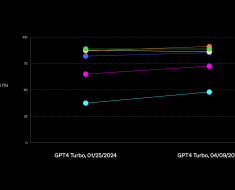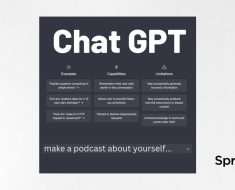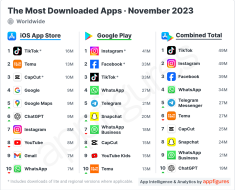Imagine you’re searching for the best way to make homemade pizza. Instead of sifting through multiple links, you’re greeted with a concise, AI-generated summary at the top of your Google search results. This is the power of AI Overviews, Google’s latest innovation in search technology. Let’s explore what AI Overviews are, how they work, and why they’re becoming the new norm in search.
Understanding AI Overviews: A New Search Feature
AI Overviews are AI-generated summaries that appear at the top of Google’s search results page, offering users a quick, comprehensive answer to their queries¹. Powered by Google’s custom large language model, Gemini, AI Overviews synthesize information from various online sources to provide a snapshot of the topic in question⁵. They aim to streamline the search process by delivering immediate, contextually relevant information, reducing the need for users to navigate through multiple links.
How AI Overviews Work: Behind the Scenes
When you enter a search query, Google’s AI Overviews system processes the intent behind your query. Here’s how it happens:
- Information Extraction: Machine learning algorithms analyze and extract relevant information from Google’s vast index⁴.
- Synthesis: This information is synthesized into a coherent response, which can include text, images, and interactive elements like videos or links to related topics⁵.
The Role of AI Overviews in Search Results
AI Overviews play a pivotal role in enhancing the user experience on Google:
- Improved User Experience: By offering a summary, users can quickly grasp the essence of their query without having to sift through numerous links. This is particularly useful for complex topics or when users are looking for a quick answer⁶.
- SEO Impact: The introduction of AI Overviews has implications for SEO strategies. Websites that provide high-quality, authoritative content are more likely to be featured in these summaries, as Google’s algorithms prioritize content that is both relevant and reliable³.
- Visibility: Being featured in an AI Overview can significantly increase a website’s visibility, as users are more likely to engage with content that appears directly in the search results⁶.
AI Overviews vs. Traditional Snippets: A Comparison
- Traditional search snippets, or featured snippets, are brief excerpts from a single webpage that Google deems most relevant to the user’s query. Here are the key differences:
- Source Integration: AI Overviews integrate information from multiple sources, providing a broader perspective, whereas traditional snippets are limited to one source⁵.
- Generative AI: AI Overviews use generative AI to create new content, whereas traditional snippets are direct excerpts from existing content⁵.
- Interactivity: AI Overviews can include interactive elements like videos or images, making the search experience more engaging than the static text of traditional snippets⁵.
Why AI Overviews Are Taking Over Google Search
The shift towards AI Overviews is driven by several factors:
- User Demand for Quick Answers: In an age where time is of the essence, users increasingly seek immediate, comprehensive answers rather than navigating through multiple links⁶.
- Advancements in AI: The development of more sophisticated AI models allows for better understanding and summarization of complex queries, making AI Overviews more feasible and effective⁵.
- SEO Evolution: As SEO practices evolve, content creators are adapting to provide information in a way that aligns with AI Overviews, further promoting their use³.
How to Optimize for AI Overviews for SEO
To optimize your content for AI Overviews and improve your SEO, consider the following strategies:
- Create High-Quality, Authoritative Content: Focus on producing well-researched, informative, and engaging content. This content should directly answer searcher questions, providing comprehensive coverage of the topic. Use citations, statistics, and quotations to enhance credibility and authority³.
- Use Structured Data: Implement schema markup to help AI understand your content better. This includes FAQ or Article schema, which can improve the chances of your content being featured in AI Overviews².
- Optimize for Topics, Not Just Keywords: Instead of focusing on individual keywords, optimize for topics. This involves creating pillar pages and topic clusters that cover a subject comprehensively, linking related content to provide depth and context³.
- Match Search Intent: Ensure your content aligns with what users are looking for. Analyze the SERPs for your main keyword to understand the intent behind the query and tailor your content accordingly².
- Include Answer-Oriented Sections: Structure your content to answer specific questions directly and clearly. This can increase the likelihood of your content being selected for AI Overviews².
- Leverage Multimedia: Use images, videos, and infographics to enhance engagement and provide additional context, which can help in ranking for AI Overviews³.
- Regularly Update Content: Keep your content fresh and relevant. Regular updates can trigger Google to re-index your page, potentially improving your chances of ranking in AI Overviews³.
- Focus on User Experience: Ensure your content is easy to read and navigate. Use clear headings, concise bullet points, and break down large paragraphs into scannable lists³.
Checklist for AI Overview Optimization:
Conclusion: The Future of Search
AI Overviews represent a significant evolution in how we interact with search engines. By providing a synthesized, AI-generated summary of information, Google aims to make searching more efficient and user-friendly. As this feature continues to develop, understanding its mechanics and implications will be crucial for both users and content creators alike. Whether you’re looking for quick facts or in-depth analysis, AI Overviews are set to redefine the search experience, making it more intuitive and informative.
What’s Your Experience with AI Overviews?
Have you noticed AI Overviews in your search results? How have they changed the way you search? Share your thoughts in the comments below!
Citations
- Mueller, John. “Google Confirms AI Overviews Affected By Core Updates.” Search Engine Journal, 23 Aug 2024.
- “Decoding LLMs: How to be visible in generative AI search results.” Search Engine Land, 26 Nov 2024.
- Patel, Neil. “How to Use AI SEO to Improve Your Website.” Neil Patel Blog, 2024.
- “TechSEO Boost: Machine Learning for SEOs.” Search Engine Watch, 4 Dec 2018.
- “How Search Generative Experience works and why retrieval augmented generation is our future.” Search Engine Land, 19 Oct 2023.
- “Google AI Overviews, clicks and traffic impact: Unraveling the mystery.” Search Engine Land, 23 May 2024.
Please note, that the author may have used some AI technology to create the content on this website. But please remember, this is a general disclaimer: the author can’t take the blame for any mistakes or missing info. All the content is aimed to be helpful and informative, but it’s provided ‘as is’ with no promises of being complete, accurate, or current. For more details and the full scope of this disclaimer, check out the disclaimer page on the website.





